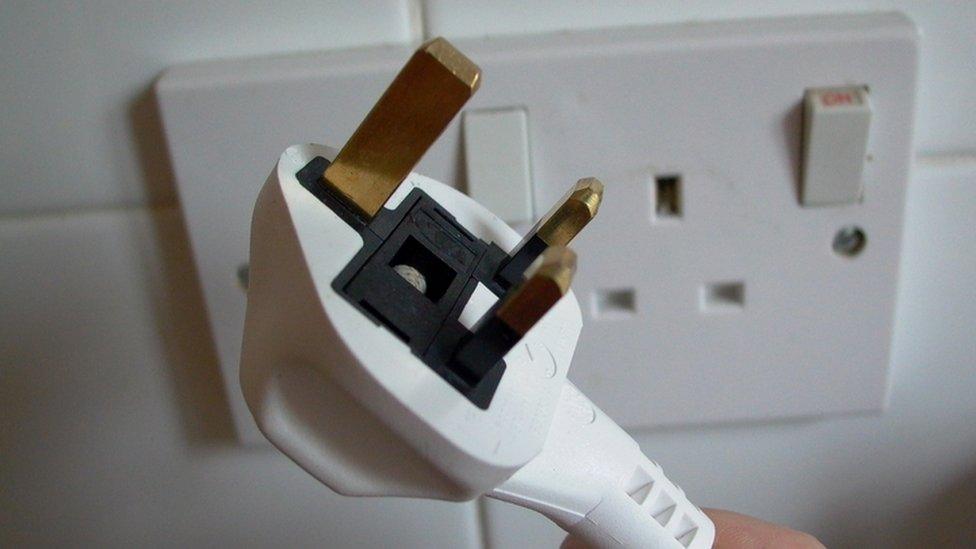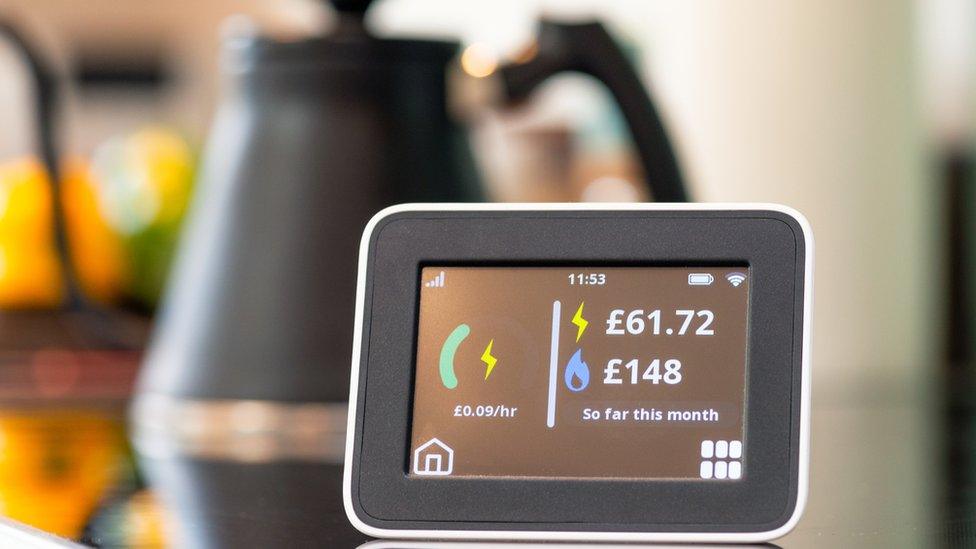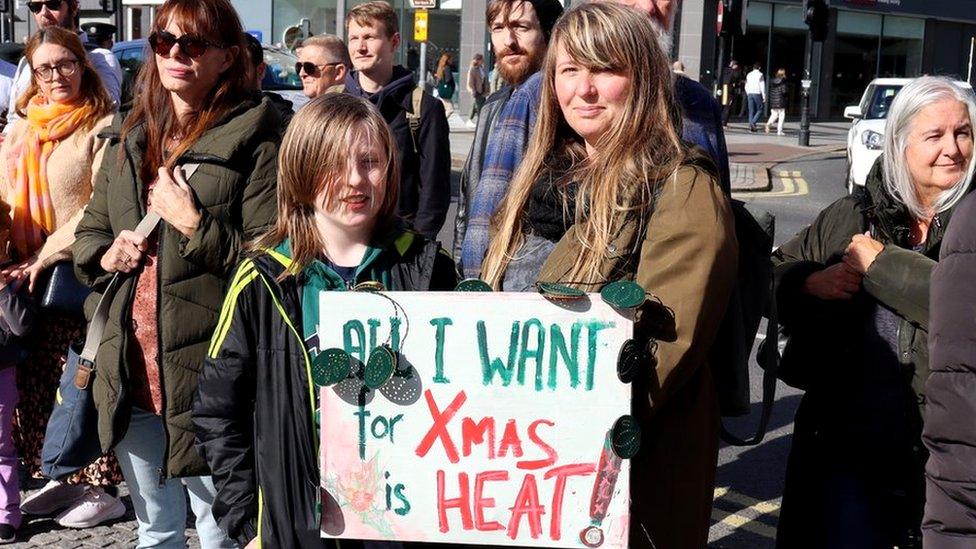Electric Ireland announces 24% increase in residential electricity bills
- Published

The energy cap is currently discounting electricity and gas bills, but that level of support in Northern Ireland is decreasing from January because of a fall in wholesale costs
The third largest electricity supplier in Northern Ireland, Electric Ireland, has announced a 24% increase in its residential electricity bills from January.
This will add about £504 on to the typical household annual bill.
Electric Ireland has about 90,000 residential customers in NI.
NI's largest electricity supplier, Power NI, has said its customers will not see any further price rises in their electricity bills this winter.
The firm supplies electricity to about 473,000 domestic customers.
After a Utility Regulator review, Power NI is cutting prices by 14% from January.
However, customers will not see a decrease in their bills due to reduced levels of government support.
Bill Coyle, Head of Residential Northern Ireland at Electric Ireland, said: "Increases in our wholesale electricity costs, driven by substantial rises in international wholesale energy prices as a result of the ongoing energy crisis, have necessitated an increase to our residential tariff from 1 January next year."
He added: "While we know this news is disappointing, we have written to our customers and advised them this increase is necessary and assured them we have tried to keep prices as low as possible."
The Energy Price Guarantee (EPG) is the government scheme currently discounting electricity and gas bills, but that level of support in Northern Ireland is decreasing from January because of a fall in wholesale costs.
This means the typical credit bill will remain about £847 a year and typical bills for customers with a pre-payment meter will remain at about £826 a year.
The head of energy policy at the Consumer Council, Raymond Gormley, said: "It is welcome news that Power NI have announced a much-needed price reduction for its customers. However, the fact that it is happening at the same time as changes are being made to the EPG scheme means that consumers won't see a difference in their bills."
Power NI also said customers' bills would remain unchanged.
William Steele, the firm's customer solutions director, said: "We work hard to keep our prices as low as possible during these challenging times and we welcome the continued support that the government's EPG scheme is providing to domestic customers in Northern Ireland."
The UK government scheme will cap the price for a unit of gas and electricity from October 2022 to April 2023.
The government previously said homes using a typical amount of gas and electricity would pay £2,500 annually.
The scheme was first announced in September by the then Prime Minister Liz Truss, who initially said the scheme would last for two years.
However, after a turbulent few weeks for the UK economy, the plan was scaled back and the cap is now due to end in April 2023.
Acting chief executive at the Utility Regulator, Kevin Shiels, said on Thursday that "the lower level of discount cancels out the decrease identified by our tariff review".
"However, as the electricity bill for Power NI's domestic customers will not change, it does mean that these customers won't pay more for their electricity this winter, despite the reduction in the energy price guarantee discount."
The regulator added that from January, Power NI's average domestic credit customer will pay £847 a year, compared to the GB Electricity Price Cap of £1,395 per year - which makes the typical Power NI customer's bill 39% lower than the equivalent in Great Britain.
The Consumer Council has a free online Energy Price Comparison Tool, external, which allows users to see the available tariffs from all suppliers in one place and it advised that customers can switch without any interruption to supply.
Related topics
- Published14 October 2022

- Published1 September 2022

- Published20 May 2022

- Published1 October 2022
